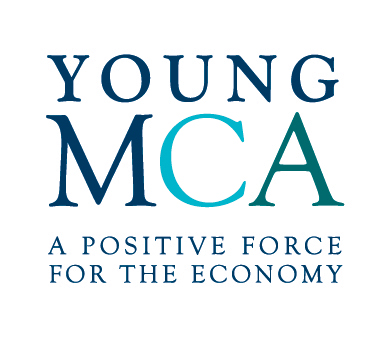Consultancy Speak is one of the most hated facets of modern corporate life, and is often dismissed as being pointless, self-indulgent or worse. However, taking a look at this phenomenon in the light of sociolinguistic theory shows that it serves a purpose after all.
There are few easier targets in the business world than Consultancy Speak, that blend of poetic and occasionally nonsensical imagery that has become a seemingly permanent feature on the corporate landscape. And wherever they’re manufacturing these new terms, business must be booming: we’re now spoilt for choice for colourful metaphors (‘peeling the onion’, ‘pushing the envelope’), ever more baffling combinations of verbs-turned-nouns (‘learnings’, ‘takeaways’), nouns-turned-verbs (‘to action’, ‘to task’), and quaint short stories (‘let’s run it up the flagpole and see who salutes’). Business is actually booming for the industry of writers who publish books satirising smilar Management Speak; most recently The Lingua Franca of the Corporate Banker, yet another compendium of these alleged abuses of the English language.
However, much of the criticism of Consultancy Speak seems to ignore a fundamental fact about why new words are adopted in language. One of the central assumptions of linguistic theory is that language is a social construct, or a ‘guide to social reality’ in the words of the linguist Edward Sapir. Somewhat like a market, it’s a more-or-less self-regulating system where individual items only have as much or as little value as we judge them to have. In other words, no one decrees that ‘this is the way we should communicate now’; rather, change happens in language because as participants in the linguistic marketplace we judge the change to be useful. ‘Thee’ and ‘thou’ dropped out of use because we no longer collectively deemed them to be necessary, and conversely, new words, phrases and constructions are only adopted because we judge them to have a purpose. So, we’re brought to the unpleasant conclusion that if Consultancy Speak is an annoyance, it’s an annoyance that can only have developed because it fills some need, or at least because we perceive it to.
What does it mean exactly to ‘fill a need’, in linguistic terms? Well, at its most basic level, this could be to communicate an idea for which there currently isn’t a word – when the computer was invented, we needed a word for it, and so someone made up a new one and we collectively tacitly agreed to use it. This sort of need doesn’t seem to be the one that Consultancy Speak fills, and even the most passionate defenders of the phenomenon probably wouldn’t claim that there was simply no other way in the English language to express ‘blue sky solutioneering’ or ‘thinking outside the box’, and that these phrases evolved out of sheer necessity.
Instead, it’s my belief that Consultancy Speak fills the other sort of need that we see throughout the history of language change: the need to use language to communicate some element of our identity. Much of language change isn’t to communicate new concepts – instead, it’s to communicate the same old concepts in a new way that identifies the speaker as part of a specific social group or culture. Think about the difference between ‘that’s cool’ and ‘that’s great’: both communicate the same information but ‘that’s cool’ also implies ‘I am young and wish to convey that identity’ (and hence the visible pain felt by everyone in the room when it’s said by someone over a certain age).
Just as ‘that’s cool’ and ‘that’s great’ are identical except for an added implication, the same can be said of Consultancy Speak compared to plain English, with Consultancy Speak additionally suggesting ‘I am a businessperson, and I wish to convey that identity’. That’s why it’s so contagious: we may see no apparent use in it, but we all associate it with business. And so like it or not, a bit of linguistic magic can occur: we take a meaning for which we already have a word (‘to do’), an implication about identity (‘I am a businessperson, take me seriously’) and create something new entirely – ‘to action’.
It is a natural fact of language that all communities develop their own linguistic quirks, and the business world is just a community like any other. Consultancy Speak therefore needs to be analysed in light of this: it is not (necessarily) lazy thinking or a self-important way of communicating; it is the way that a community has taken language and made it a marker of their social identity, and in this respect it’s no different from the street slang of anywhere in the world. This alone doesn’t mean that it deserves to be respected, but it shows that it is a logical and perhaps inevitable development that comes with being part of a community. Admittedly, a lot of the time, language that implies ‘I’m in business’ is not appropriate or necessary, much as street slang wouldn’t be appropriate or necessary for an article in a broadsheet newspaper, for example. However, there are occasions when language use that identifies the user as part of a community is no bad thing, as anyone who speaks a dialectal form of English knows when they return to the place where that dialect is spoken.
With Consultancy Speak, therefore, there is a time and a place to imply this social identity (sparingly and in contexts where everybody shares that identity) and a time and a place to select other words (when communicating with the general public), just as there is a time and a place for street slang and dialectal English and saying ‘that’s cool’ – all of the above are neither ‘good’ nor ‘bad’ in isolation, rather just fit for specific purposes. Consultancy Speak may not be the most elegant addition to the English language, but our linguistic marketplace is all the richer for having it.
Written by Jack Goldstein, Management Consultant at EY, for the Young MCA Update


